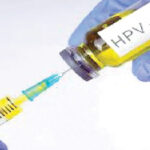Pharmaceutical Sovereignty: Learning from Big Pharma’s Impact on South Africa

Stakeholders in the healthcare sector are shedding light on the harsh realities faced by developing nations when dealing with major pharmaceutical companies. The recent revelation of South Africa’s vaccine contracts with Big Pharma has ignited a call for global action to prioritize pharmaceutical sovereignty. This article explores the details of these contracts and advocates for a stronger stance against the exploitation of developing countries by pharmaceutical giants.
Unveiling the Contracts: In August, a Supreme Court ruling in South Africa compelled the government to disclose its previously confidential vaccine supply agreements with leading pharmaceutical companies. These documents exposed a disturbing truth: Big Pharma’s primary concern when selling COVID vaccines to the Global South was profit maximization, rather than aiding in the fight against the pandemic.
Contracts Analysis: An analysis conducted by the Health Justice Initiative (HJI), a South African health equality non-profit, revealed significant disparities in pricing. For instance, Johnson & Johnson charged South Africa 15 percent more per dose than the European Union, while Pfizer-BioNTech’s price was nearly 33 percent higher for South Africa compared to the African Union.
A Long-standing Issue: The exploitation of developing countries by Big Pharma has been an ongoing problem even before the pandemic. Pharmaceutical companies have consistently pressured Global South nations into purchasing essential medicines and vaccines at exorbitant prices and under unfavorable conditions.
A Moment of Transparency: The release of these contracts marked a significant victory for health equality advocates. Big Pharma typically employs legal teams to maintain the secrecy of their contracts, and governments often collaborate by keeping these deals hidden from the public eye. South Africa’s decision to reveal these contracts shed light on the extent of the exploitation faced by developing countries.
Role of Global South Manufacturers: The involvement of the Serum Institute of India, a Global South-based vaccine manufacturer, and Gavi, an organization focused on equitable vaccine access, in these contracts was particularly disheartening. The contracts showed that smaller Global South nations must rely on themselves for timely access to life-saving vaccines and medicines.
Call to Action: The urgent need for action is clear: Global South countries must prioritize pharmaceutical research and development, establish reliable supply chains for essential materials, expand their manufacturing capabilities, and break free from Big Pharma’s grip. This imperative is especially pressing in Africa, where the majority of medicines are imported.
Building Local Capacity: Many African nations have the foundational infrastructure needed to achieve pharmaceutical independence. For example, South Africa hosts Biovac, a partially state-owned vaccine manufacturer ready to contribute to the country’s pharmaceutical sovereignty.
Investment in Local Initiatives: Global South governments must invest substantially in local initiatives and make pharmaceutical localization a long-term priority. However, some nations have overlooked the potential benefits of localized production, favoring short-term budgetary gains.
The Indian Example: India, renowned for supplying vaccines globally, recently witnessed the challenges of concentrated vaccine production during the COVID-19 pandemic when it restricted vaccine exports due to domestic needs.
Supporting Local Manufacturers: Global South governments should refrain from awarding contracts to foreign suppliers for short-term savings, as this hinders progress toward pharmaceutical independence. Supporting local companies like Biovac is crucial.
Conclusion: South Africa’s vaccine contracts serve as undeniable evidence of Big Pharma prioritizing profit over lives in the Global South. It is time for developing nations to take a stand against this exploitation and work towards pharmaceutical independence. While achieving pharmaceutical sovereignty may be a long-term endeavor, governments can start by supporting local manufacturing efforts, ultimately breaking free from the grasp of these pharmaceutical giants.



